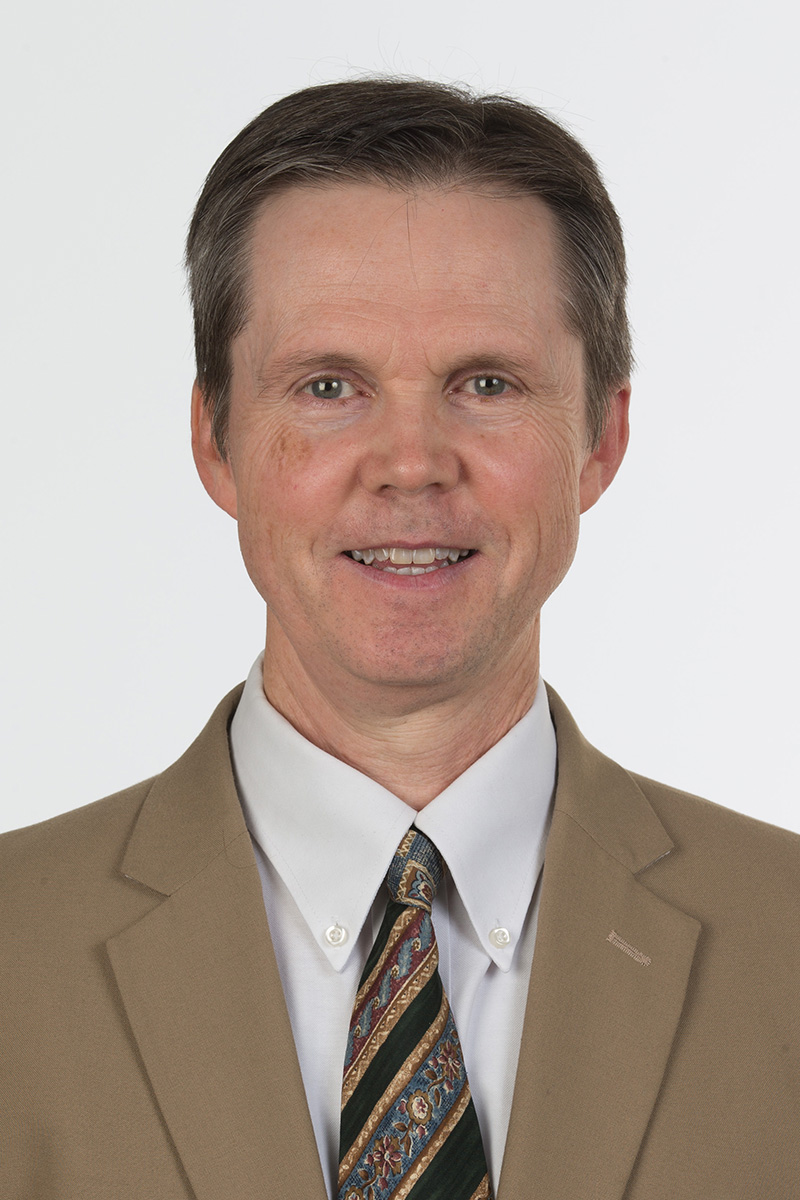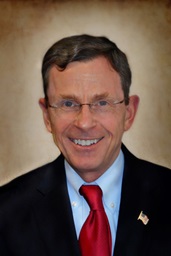Key points:
- For the Peninsula-Delaware Conference, this year’s annual gathering was a time for a reset following General Conference, disaffiliations and the pandemic.
- As the effects of General Conference play out in different ways around the church, Peninsula-Delaware exemplifies the sense of forward movement that many conferences are experiencing.
- The disaffiliation period is over, and it’s time to focus on the “main thing”: making disciples of Jesus Christ, Bishop LaTrelle Miller Easterling said.
- It is also a time to be in conversation and work across theological differences, she said.

Photo by Mike DuBose, UM News.
Commentaries
Annual conference gatherings are good places to get a read on what is happening in The United Methodist Church.
Attending a handful of conferences in recent years, I’ve seen the church move from open division in 2022 to a growing hope in 2023, as the disaffiliation period neared its end.
This year, on the other side of a momentous General Conference, we are seeing fallout in some conferences, such as Côte d’Ivoire’s decision to leave the denomination. However, excitement for the future is building across the church, and the Peninsula-Delaware Conference is a perfect example.
About 500 members of Peninsula-Delaware met June 6-8 with a theme of “Like fire shut up in our bones,” and at times it seemed as if the fire was bursting out.
Through the morning devotions, ministry reports and worship moments, excitement was palpable. This was particularly true during the service of ordination, when the Spirit carried the congregation into a moment of spontaneous revival, aided by stirring song leaders and a virtuoso worship band.
Bishop LaTrelle Miller Easterling set the tone in the opening worship sermon, based on Romans 12:1, 9-12, noting that every person bears the image of God.
“We are created in the image and likeness of God, so when we look in one another’s face, we ought to understand that we are seeing the image and likeness of God. That ought to help us love each other just a little bit more,” she said. She drew a loud approval from the gathering when she stated that rather than seeing a person’s political or theological leanings, she is beholding God’s image when she looks at someone.
The church is called to offer Christ to the world, she said. The time for division, rancor, polemics, “pugnacious piety” and refusing to love one another genuinely is over, she said.
The bishop tapped into a sentiment shared by many across the denomination. We are ready for healing and a renewed sense of unity. And to use Jeremiah’s imagery, we are ready to go forth and let the fire loose from our bones.
Members of the conference told me this annual meeting was as different as night from day compared with the 2023 gathering. Last year’s was contentious at times. Peninsula-Delaware is a small conference where everyone knows everyone else, and the disaffiliation of 92 churches hit hard at a personal level.
This year’s event, held at Ashore Hotel and Resort, was upbeat. Having a beach party one evening — complete with bonfire and roasted marshmallows — didn’t hurt.
Conference leaders said they were finally able to focus on ministry again, after investing so much time and energy on the pandemic, disaffiliations and General Conference.
“We are excited to be getting back to making disciples,” said the Rev. Jackie Ford, director of connectional ministries.
For her, the gathering felt as if the tone of the General Conference had spilled over to the annual conference. People listened to and respected one another, she said.
“In the past we’ve had people who had their own agenda, and now we’re all on the same team, we’re all on the same path, we’re all working toward the same goal.”
Chatting after the conference, the Rev. Jack Shitama said: “The people who are here are people who want to be here.” Shitama is a staff executive for Camp Pecometh and director of the Center for Vital Leadership — joint ministries with the Baltimore-Washington Conference. “Now we can move forward.”
A clear theme also emerged that this is a time for pausing and reflecting, and the church must embrace it. “It’s a reset moment for us,” Ford explained, “… so we can hear from God.”
The Rev. Ron Bell Jr. told the conference’s laity gathering that it was important to spend time in Gilgal and not be in a rush to get to Jericho, noting that the conference has stuff to process. Bell, director of healing and resilience for Discipleship Ministries and the Upper Room, said this period after General Conference provides space for being creative, building new relationships and getting back to Jesus. It is also a time for “dropping some stones” — letting go of things — and finding healing before moving ahead.
The conference lost 23% of its churches during the period of disaffiliations. A handful of churches that decided to stay have struggled with that decision and will need care. Easterling emphasized her commitment to working with all churches and moving the conference forward.
The bishop also made it clear that the time for disaffiliations is over. General Conference eliminated the policy that had provided a path for churches to exit the denomination, and the Northeastern Jurisdiction College of Bishops — which Easterling leads — affirmed that action.
“It is time for us to keep the main thing the main thing, which is making disciples of Jesus Christ for the transformation of the world,” she said.
The Book of Discipline has changed, she said. It will no longer have restrictive language about who may be ordained, and the proscriptions regarding LGBTQ people are gone. She noted that “this is not a time for us to rush to quick decisions and more rulemaking for mandates and dictates.”
“This is a time for us to be in conversation,” she said. “This is a time for us to engage in deep and thorough study of God’s word and to make sure that we really do understand what God’s word does and does not say on this and several other matters. Some of what we’ve been led to believe is in Scripture is simply not there. Some of it has been misinterpreted.
“And so this really is an opportunity for us to sit down and understand what does the holy writ, what does the word of God, say to us about this very, very central issue to our humanity and to our communities.”
Subscribe to our
e-newsletter
Easterling noted there were people present who believe women and divorced clergy shouldn’t be in ministry, but that isn’t seen as a reason to leave The United Methodist Church. She asked why loving someone of the same gender is the item causing people to leave the church.
She told the story of two people in the Baltimore-Washington Conference who befriended each other on a mission project. When one of them expressed concern about gays in the church, the other person shared that he was gay, not knowing how his new friend would react. The two continued working together.
“Beloved, we can work together across our theological differences,” said Easterling, who leads both Peninsula-Delaware and Baltimore-Washington. “We have been doing it and we can continue doing it to the glory of God.” That is what it means to be the beloved community of God and to offer each other grace, she said.
I could see that community in action through the ministry reports, which gave a picture of work that is transforming lives, such as the Catalyst Initiative, aimed at helping churches engage in new ways in their communities; a youth event planned for 2025; work with the Immigration Law and Justice Network; relief ministries; women’s and men’s organizations; Camp Pecometh; the Peter D. Weaver Congo Partnership; the Center for Vital Leadership; and the emphasis on Missional Action Planning to help congregations and districts be vital.
Peninsula-Delaware is a small conference accomplishing great things. And it’s just one example.
You can see that spirit and energy reflected in conference reports being posted by UM News from around the connection. At annual gatherings, United Methodists are refocusing, anchoring themselves in worship and their steadfast faith in God, connecting with the power of the Holy Spirit and discerning how Jesus is calling them into the future.
One of Easterling’s goals is referred to simply as MMFA: “Make ministry fun again.”
“We’re back to that,” Ford said. “… We’ve had so much fun and joy here. Everybody’s been thankful for that — thankful to God.”
Tanton is chief news officer for United Methodist Communications.
News media contact: Tim Tanton or Joey Butler at (615) 742-5470 or [email protected]. To read more United Methodist news, subscribe to the free Daily or Weekly Digests.



